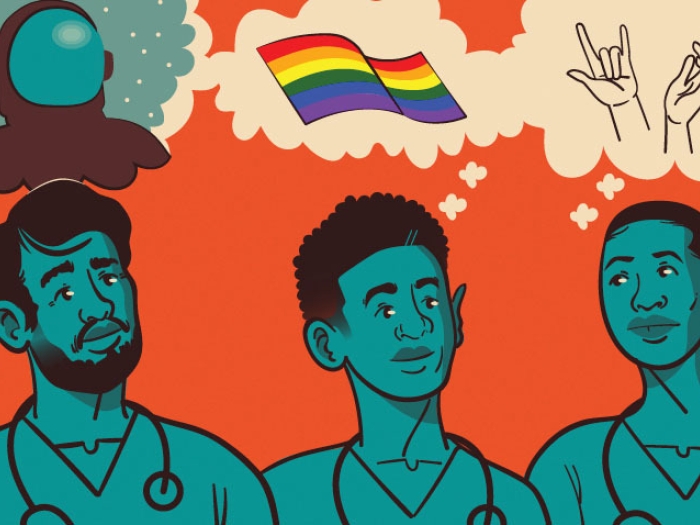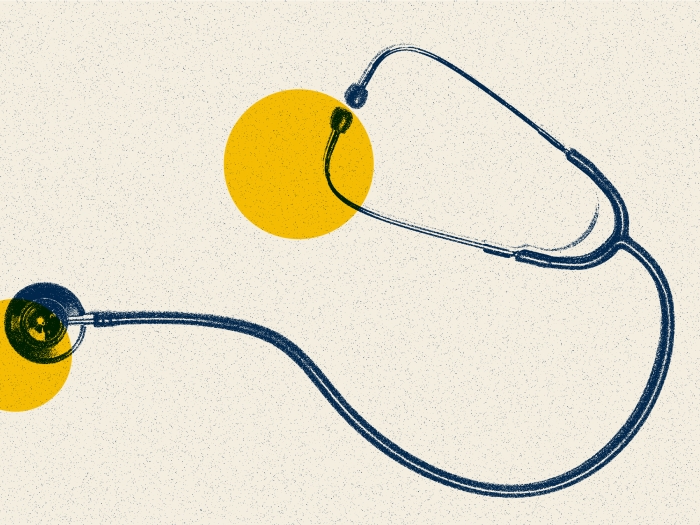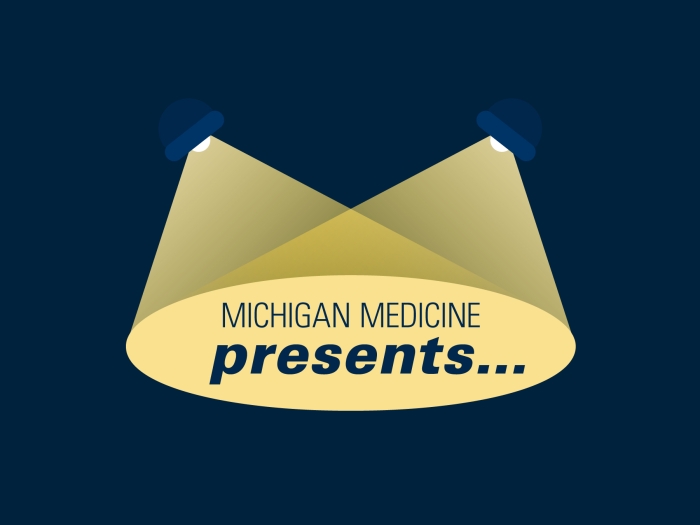A medical educator discusses competency-based medical education.
1:12 PM
Author |

The University of Michigan Medical School boasts many things that make it unique, including its assessment program. Among several other metrics, medical students are assessed on their development in core competencies, which involves a process that is similar to how residents are assessed during residency training.
According to Seetha Monrad, M.D., who serves as the assistant dean for evaluation, assessment and quality improvement at the U-M Medical School, "Competency-based education aspires to emphasize the development of students in multiple domains, while providing them with meaningful feedback."
Competencies describe observable abilities that integrate knowledge, skills, values and attitudes, or in other words, the things physicians need to do. The use of competencies as outcomes allows for a more holistic approach to assessing medical students when it comes to their growth as aspiring physicians.
Like Podcasts? Add the Michigan Medicine News Break on Spotify, Apple Podcasts or anywhere you listen to podcasts.
Monrad says that core competencies are mostly formatively used, meaning that faculty don't determine grades based upon them. "The competencies inform the decision-making process of grading committees when they look at learning patterns," she said. "But really, the competencies are focused on formative and lifelong learning instead of more formal assessments or achievements."
Ultimately, Monrad says that the U-M Medical School model is based on national standards that align directly with what is expected in residency training. Six of the competency domains come directly from the Accreditation Council for Graduate Medical Education, or ACGME, and two are more specific to the school, itself.
The "Big 8" core competency domains include:
-
The Patient Care Domain, which is focused on students providing patient-centered care that is compassionate, culturally competent, appropriate and effective for the treatment of health problems and the promotion of health.
-
The Medical Knowledge Domain, which is designed for students to demonstrate a strong foundation in the biomedical sciences, socio-behavioral sciences and clinical medicine. Students then apply this knowledge when working with other individuals, their communities and society.
-
The Communication Domain, where students demonstrate interpersonal and communication skills that result in the effective exchange of information (and collaboration) with patients, their families and health professionals.
-
The Professionalism Domain, which emphasizes the demonstration and maintenance of the attributes of compassion, altruism, respect, integrity and commitment to addressing the needs of a diverse and everchanging society. Within this domain, both students and graduates also seek excellence when it comes to their professional endeavors.
-
The Leadership, Teamwork and Interprofessional Domain, where students demonstrate their abilities to engage with an interprofessional team in a manner that optimizes safe and effective patient- and population-centered care. Aspiring physicians will have the opportunity to grasp leadership skills that will positively influence the world of medicine.
-
The Systems-Based Practice Domain, which hones in on developing an awareness of and responsiveness to the larger context (and systems) of health care, while students learn how to effectively call upon other resources when providing optimal health care.
-
Practice-Based Learning and Improvement is designed around students demonstrating the ability to investigate and evaluate one's own performance, including appraising and assimilating scientific evidence and continuously improving in areas that are focused on patient care. This encourages constant self-evaluation and lifelong learning.
-
Critical Thinking and Discovery revolves around students demonstrating curiosity, awareness gaps in current knowledge and active participation in problem-solving, as well as the discovery of knowledge.
Competency committees in undergraduate medical education
The U-M Medical School implemented competency assessment committees in 2016 as a part of its transformative curriculum revision.
"The idea was to move away from a 'deficit' model of academic review and shift towards a 'developmental' model that focuses on helping everyone improve," said Monrad. "Anyone can have a bad day, for example, but if there's an observed pattern around needing improvement in a few competency areas, the committee can identify these across multiple courses or rotations. And this gives our students an advantage because we can help them."
According to Monrad, the committee is comprised of a diverse group of individuals.
I think our willingness to push the envelope when it comes to implementing this type of assessment model has really helped us succeed.Seetha U. Monrad, M.D.
"The voting members of our committee are faculty representing different parts of the curriculum," she said. "There is also voting representation from the patient perspective and other allied health professionals."
She adds that they also have non-voting members such as individuals from student services and the honor council, who provide "context, data and resources" to the process.
The committee reviews multiple sources of competency assessment data, including direct observations from the clinical environment, clinical skills assessments, and tests of knowledge and clinical reasoning skills. Monrad says that this data is then visualized in a sophisticated learning outcomes dashboard.
"The competency committee can then review the data longitudinally from the start of medical school to the finish, which can be really useful in helping our students effectively grow," she said. "Additionally, students see their own data, and perform several self-assessments of their own progression with the guidance of faculty coaches. This provides more meaningful feedback than simply receiving a grade or a numeric score."
Monrad noted that the U-M Medical School is "one of a few undergraduate medical institutions that is dedicated to the implementation of competency-based medical education." She says that "while everyone does things differently, we're one of a handful of places that other schools look to as a standard when they're thinking about integrating core competencies at their own institution."
And the program has had tremendous success due to its willingness to iterate.
"Our committee members have a lot of wisdom and experience with data, as well as patients and education," said Monrad. "I think our willingness to push the envelope when it comes to implementing this type of assessment model has really helped us succeed. We are constantly making improvements to our model. Context matters, and in competency-based education, we can truly support our students holistically. That's very powerful."
Live your healthiest life: Get tips from top experts weekly. Subscribe to the Michigan Health blog newsletter
Headlines from the frontlines: The power of scientific discovery harnessed and delivered to your inbox every week. Subscribe to the Michigan Health Lab blog newsletter

Explore a variety of healthcare news & stories by visiting the Health Lab home page for more articles.

Department of Communication at Michigan Medicine
Want top health & research news weekly? Sign up for Health Lab’s newsletters today!





